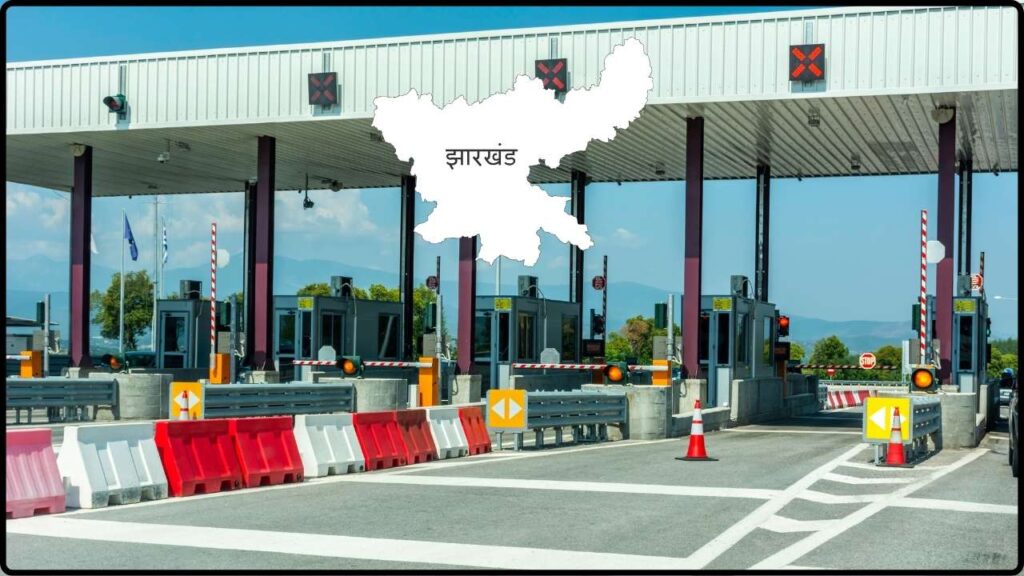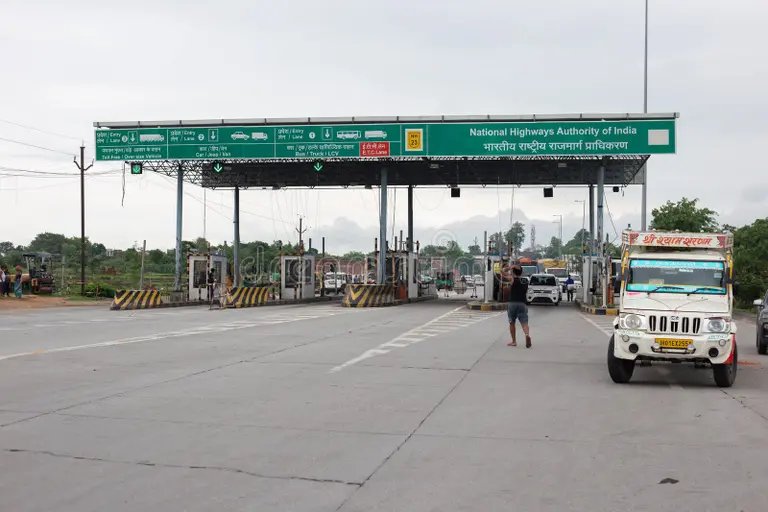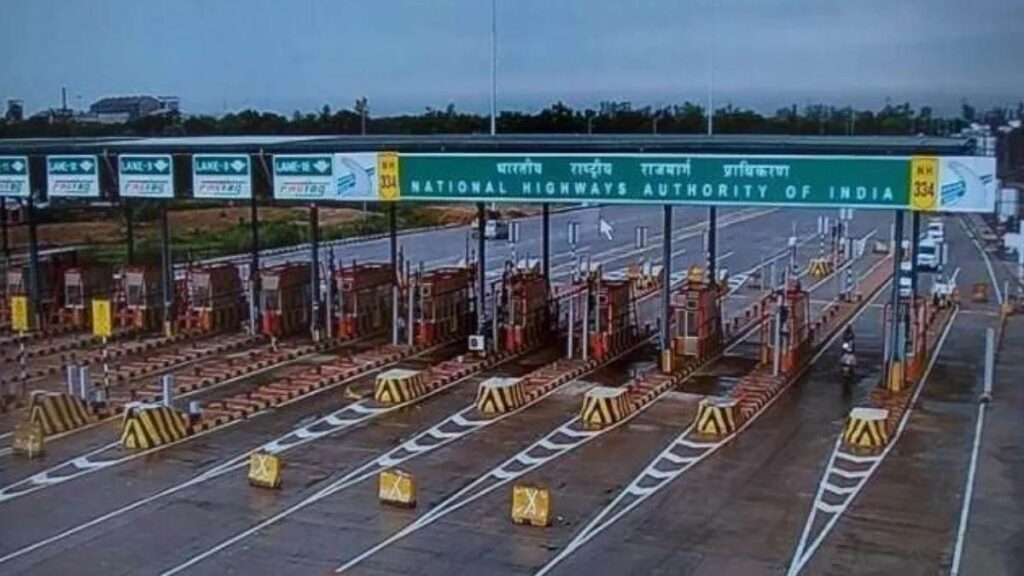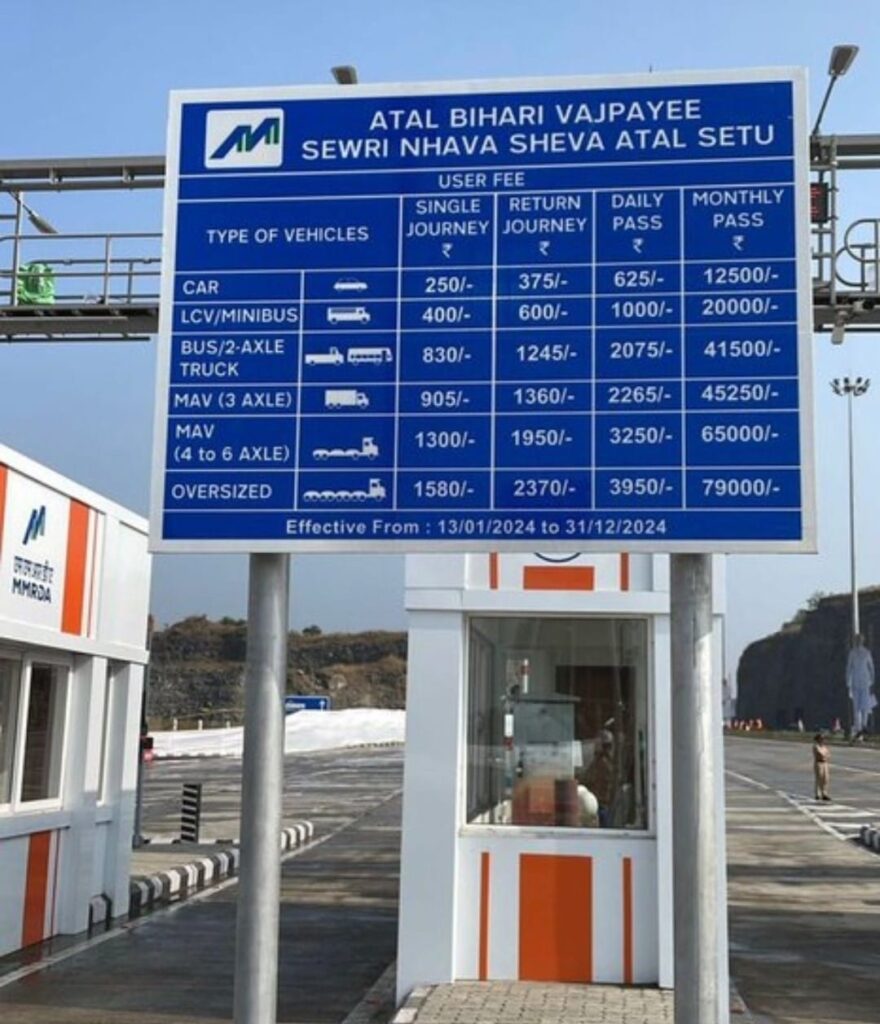
Jharkhand Toll Plaza Faces Heat: When we talk about jobs and livelihoods, nothing hits home harder than the fight for local employment. In Jharkhand, India, toll plazas have become the latest battleground. Residents, youth groups, and unions are demanding that 75% of jobs at toll plazas be reserved for locals. Sound familiar? In the U.S., we’ve had long debates around “Buy American” policies, local hiring rules in construction, and fair labor rights. The sentiment is the same in Jharkhand: “If the project runs through our land, locals deserve the first chance at jobs.” At first glance, it sounds simple: “Give locals the jobs.” But beneath the surface lies a complex mix of laws, economics, politics, and fairness. Let’s break it down in a way that a 10-year-old can follow, while also providing insights that professionals, policymakers, and business leaders will find valuable.
Jharkhand Toll Plaza Faces Heat
The battle over 75% local hiring at Jharkhand toll plazas is more than just a fight over a few hundred jobs. It represents decades of frustration, where locals saw outsiders benefit from industries on their land. The demand now is clear: if development happens here, give us the first chance to work. The solution lies in balance. Enforceable quotas may scare businesses, but combining training, incentives, and transparency can create a win-win path. Globally, local hiring is successful when it empowers communities without crippling investors. Whether in Jharkhand, New York, or Texas, the principle remains the same: economic growth should not bypass the people who live where it happens.
| Point | Details |
|---|---|
| Topic | Jharkhand Toll Plaza Faces Heat With Demand for 75% Local Hiring |
| Local Quota Law | Jharkhand passed a law in 2021 requiring 75% local hiring in private sector jobs (salary ≤ ₹40,000/month). Official Law Reference |
| Current Status | The law is stayed by the High Court in 2024 after challenges from businesses. |
| Toll Plaza Angle | Residents demand toll plaza jobs (fee collection, admin, and support roles) for locals. |
| Jobs Created | Over 1,200 jobs directly linked to toll operations across Jharkhand highways. |
| Revenue Scale | Jharkhand toll plazas generate ₹1,500–₹2,000 crore annually in collections. |
| Comparisons | Similar to U.S. policies like “Buy American” Act and HireNYC local job programs. |
| Who Benefits | Local youth, semi-skilled workers, tribal communities near highways. |
| Concerns | Businesses fear skill gaps, compliance issues, and investor pushback. |
Historical Background: Why Jobs Matter So Much in Jharkhand
Jharkhand is one of India’s richest states in terms of minerals like coal, iron, and copper. Yet it remains one of the poorest when it comes to employment and development. Historically, industries set up in the region brought in workers from outside states like Bihar, Uttar Pradesh, and West Bengal.
For tribal communities and rural populations, this created a deep sense of exclusion. Over time, this resentment has turned into organized protests. Toll plazas today have become a visible symbol of this unfairness. Every day, locals see outsiders manning the booths and wonder: “Why not us?”

Toll Plazas and Their Economic Footprint
Highways are critical to Jharkhand’s economy. According to the National Highways Authority of India (NHAI), Jharkhand has more than 25 toll plazas. Each employs 50–100 people, creating a direct workforce of at least 1,200 employees.
But the impact is larger. Toll plazas collectively generate between ₹1,500 and ₹2,000 crore annually in collections. That’s not small change—it’s money flowing through rural Jharkhand every single day. For locals, this isn’t just about jobs, it’s about sharing the benefits of infrastructure running across their land.
Roles at toll plazas include:
- Toll collectors handling transactions.
- Shift supervisors monitoring staff and funds.
- IT staff operating electronic toll collection.
- Maintenance workers handling booths and road upkeep.
- Security personnel ensuring safety and order.
For a rural youth, earning even ₹15,000 to ₹25,000 a month from these roles is a path to stability.
The 75% Local Hiring Law – A Recap
In 2021, Jharkhand passed the State Employment of Local Candidates Act.
- Companies must hire 75% locals for jobs with salaries ≤ ₹40,000/month.
- Firms had to register workforce details on a state portal.
- Exemptions were possible if local candidates lacked the right skills.
The intent was noble: protect Jharkhand youth from being left out. But businesses revolted, claiming the law was unconstitutional. In December 2024, the Jharkhand High Court stayed its implementation after petitions from industry groups.
With the law frozen, locals turned to toll plazas as their frontline demand zone.

Case Studies from Other States in India
Jharkhand isn’t the first state to try local hiring quotas:
- Haryana: Mandated 75% local hiring in private jobs (up to ₹30,000/month). Businesses complained, and the courts stayed parts of it.
- Andhra Pradesh: Passed a law in 2019 for 75% local hiring in industries, but implementation has been patchy.
- Maharashtra: Has long had local job preference laws for Marathi speakers in government-backed sectors.
These cases show that enforcement is always tricky. Most states end up with negotiated settlements—a mix of training, incentives, and partial compliance.
Voices from the Ground
Locals see toll plazas as “low-hanging fruit” for jobs. Their arguments are straightforward:
- “If outsiders can be trained to operate toll booths, why not us?”
- “Our land was acquired for these roads. Jobs are fair compensation.”
Unions and activists echo these concerns, while business associations argue:
- “The 75% rule could scare away investors.”
- “Companies must have freedom to hire the most skilled candidates.”
Legal and Constitutional Debate
India’s Constitution guarantees equality in employment under Articles 14 and 16. Quotas exist in public sector jobs, but extending them to private companies is controversial.
Courts have consistently flagged this as a violation of fundamental rights. That’s why both Haryana and Jharkhand’s local hiring laws face judicial hurdles.
In contrast, U.S. models are softer. Programs like HireNYC or federal local hire rules tie local hiring to public funding. Instead of blanket quotas, they use incentives and conditions on contracts. That’s why they survive legal scrutiny.

Why Locals Want Toll Plaza Jobs
- Accessibility – Doesn’t need advanced degrees.
- Fairness – Highways cut through local land, so jobs should go to locals.
- Economic circulation – Wages earned locally are spent locally.
- Social peace – Hiring locals reduces resentment and protests.
Concerns of Businesses and Government
Businesses raise concerns like:
- Skill shortages in IT and accounting roles.
- Higher costs for training and compliance.
- Legal risks with courts staying quota laws.
The government must strike a balance: support locals without discouraging investment.
Global Perspective
Local hiring isn’t unique to India.
- South Africa: Mining laws require local community hiring quotas.
- Canada: Indigenous communities get priority in projects on their land.
- United States: Local hiring rules apply in city and federal infrastructure projects (like New York’s HireNYC).
The global lesson is clear: local hiring can work if paired with training and incentives, not just blanket mandates.
Practical Solutions for Jharkhand As Jharkhand Toll Plaza Faces Heat
- Training Before Hiring
Set up Highway Training Centers with NHAI to prepare locals for toll plaza roles. - Phased Rollout
Start with 50% local hiring, scale to 75% as training builds capacity. - Incentives Instead of Punishment
Offer tax breaks or lower lease fees to operators who exceed hiring quotas. - Transparency Portals
Publish toll plaza workforce data online for public accountability. - Community Benefit Agreements
Require toll operators to sign agreements promising a percentage of jobs to locals.
Future Outlook
- If quota enforced: More local jobs, but risk of private investors pulling out.
- If struck down: Protests will intensify, creating political risks.
- Middle ground: Training + incentives could balance both sides.
Elections in Jharkhand often swing on local issues like jobs. Expect the 75% hiring debate to play a big role in future campaigns.
Actionable Advice for Local Youth
If you’re a job seeker in Jharkhand:
- Get certified – Enroll in IT, accounting, or toll management short courses.
- Register online – Use the state’s Labour Department portal.
- Build soft skills – Customer service and communication are valued.
- Network locally – Toll jobs often go through contractors, so keep connections strong.
“No More Mysterious Justice”: Jharkhand HC Strikes Down GST Order, Demands Clarity
ED Cracks Down on Fake ‘Input Tax Credit’ Fraud in West Bengal, Maharashtra, and Jharkhand!
Trump’s Tax Credit Shock Isn’t As Bad As Feared – Solar Stocks Surge Big










